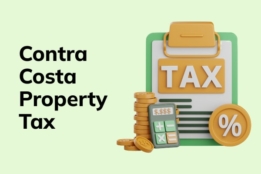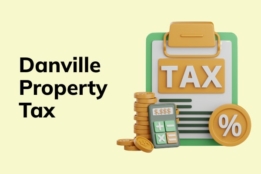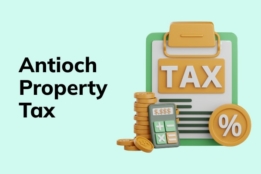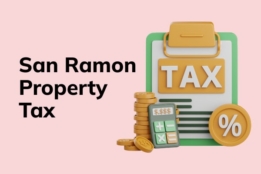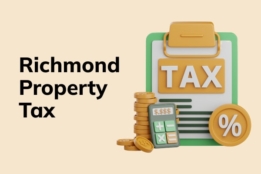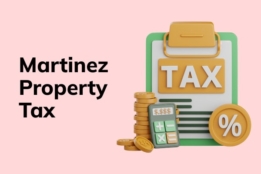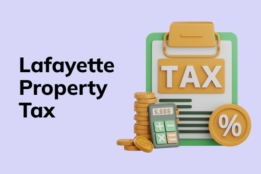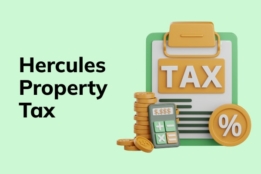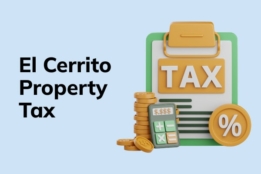Table of content
Who Qualifies For Property Tax Exemption California
Property tax is collected by state authorities from property owners in California. It is calculated as a percentage of your home’s value, and the funds generated are allocated to crucial local services, such as schools. This process is integral to upholding public services, and property tax rates are determined with a commitment to fairness.
There are various answers to the question of who qualifies for property tax exemption in California. Let’s look at some common property tax exemptions and who they are for:
- Homeowners’ exemption: This takes some money off the assessed value of a property so that the owner-occupier’s tax liability is reduced.
- Disabled veteran exemption: This applied to certain disabled veterans, providing property tax relief for eligible individuals.
- Church exemption: This is designed for certain religious organizations to get relief for properties primarily used for religious activities.
- Welfare exemption: Non-profit organizations that meet the specific criteria can apply for this exemption. It covers groups with religious, charitable, scientific, educational and other purposes.
- Agricultural exemption: This may apply to properties with an agricultural purpose.
- Historical property exemption: If your property is designated as a historical landmark, this exemption may apply as an incentive for preserving historical properties.
The eligibility criteria and application procedures may vary for these exemptions. Feel free to reach out to us for advice regarding any property tax exemptions that might be applicable to you if you’re contemplating a move to the state.

What Is Property Tax Exemption?
Property tax exemption refers to a set of legal provisions that offer tax relief to specific individuals or types of properties. Generally, these provisions allow qualified individuals or groups to pay reduced property taxes, and in some instances, they might be entirely exempt from property tax payments.
These exemptions are granted by state or local governments to individuals, groups, and properties that meet established qualifying criteria upon application. The objective is to provide financial support to vulnerable populations, promote specific activities, or back groups that contribute to the overall well-being of the community.
There are various types of property tax exemptions, as summarized in the preceding section. Let’s delve deeper into some of the most prevalent categories of tax exemptions and explore the details surrounding them.
Homeowners Property Tax Exemption
The homeowners’ property tax exemption is a tax relief program that alleviates the property tax burden for individuals who own a property and use it as their primary residence. It works by lowering the assessed value of the property by up to $7,000, thereby reducing the property tax bill. The objective of this exemption is to provide financial support to homeowners, thereby enhancing the affordability of property ownership.
The eligibility criteria are as follows:
- You must own the property, and it must be your primary residence
- It must be your principal place of residence as of January 1st of the assessment year
- This exemption is not available to people who rent out a property or use it as their second home
The exemption amount is determined by the California State Legislature. You generally need to apply for the exemption only once, and the deadline for applications is usually April 10th each year. If you are interested in buying a home in California, contact us and we can help you find suitable options for your new home.
100% Property Tax Exemption
This is a complete exemption from property tax, and it is available for exclusive categories of properties or people. Having full relief from property tax on your designated property is not attainable for most people. But there are several types available for specific situations and groups. They are as follows:
- Disabled veterans 100% exemption: Some veterans who meet the strict eligibility criteria may qualify for a 100% exemption from property tax.
- Church 100% exemption: Some properties owned by religious groups for worship and other religious activities may qualify for a 100% exemption.
- Historical property 100% exemption: This is reserved for certain properties designated as historical landmarks or situated in historic districts.
- Welfare exemption: Sometimes, welfare property tax exemption can extend to 100% for qualifying non-profit organizations.
The eligibility criteria for 100% property tax exemptions can vary based on local regulations and specific exemption categories. If you’re interested in pursuing a 100% exemption, it’s advisable to reach out to your county assessor’s office or local tax authorities.
How To Apply For Property Tax Exemption
Property tax exemption could make home ownership easier for you to access and maintain. Here’s how to apply for property tax exemption in California:
- Confirm your eligibility: Identify the property tax you could qualify for by checking the criteria.
- Gather the necessary documentation: You will need various documents as part of your application. These could include evidence of your ownership, residency, income, age, identity and other requirements that relate to the specific exemption you are applying for.
- Complete and submit the application: Obtain the right form from the county assessor’s office (or their website) and fill it out accurately. Once complete, submit it along with supporting documents to the country assessor’s office. Be aware of the application deadlines – it is April 10th for most exemptions.
- Wait for review: You will have to wait while the assessor reviews your application. You will receive notification on the outcome when they have reviewed the document.
- Appeals: If your application is denied, you will have the right to appeal the decision.
The application process will vary somewhat depending on the type of exemption you are applying for and, potentially, the county you are in. It is recommended to visit your county assessor’s office website or get in touch with them to access the most up-to-date information regarding applications.
Filing For California 7000 Property Tax Exemption
If you are asking “How do I file for California 7000 property tax exemption?” you should know it is just another name for homeowners’ property tax exemption. Scroll up for a detailed guide on what this is and what the criteria are for it. It is called the 7000 property tax exemption because it could reduce the assessed value of your property for tax purposes by up to $7,000.
The process for filing is the same as the step-by-step process described in the section preceding this one.
Additional Exemptions And Benefits
We discussed various other types of property tax exemptions in California earlier in this post. If you believe you qualify for any of these exemptions, you are welcome to submit an application to your county assessor’s office. These exemptions could encompass the Church Exemption, Welfare Exemption, Disabled Veterans’ Exemption, or Historical Property Exemption.
In addition to these considerations, homeowners may have the option to apply for homestead exemptions to gain protection against specific claims from creditors. These exemptions can prove beneficial if you happen to fall behind on your property tax payments.
- Automatic Homestead Exemption: This offers limited protection to homeowners without the need to file a formal declaration. The levels of protection vary for different situations, like single homeowners, those that live with one or more family members, or senior citizens and disabled individuals.
- Declared Homestead Exemption: This provides additional protection beyond the automatic one. It requires a formal declaration of homestead with the county recorder’s office and increases the amount of protection offered to the types of households listed above.
The specifics of homestead exemptions vary, and it’s important to note that you are not shielded against all types of debts. Property tax liens may not fall under this protection, and the exact levels of safeguarding available might change. For precise information, reach out to your county recorder’s office, and consider consulting legal professionals for expert guidance tailored to your individual circumstances.

Disability Property Tax Exemption In California
This property tax exemption offers tax relief to people with disabilities. It is intended to ease the tax burden on a vulnerable section of society, particularly if those people have limited income or resources. It reduces the assessed value of their property to lower their tax bill.
The eligibility criteria are as follows:
- You must be a homeowner who occupies their property as their primary residence
- You must have a qualifying disability as defined by California law
- Your earnings must not exceed the qualifying threshold
The qualifying disabilities include certain physical and mental disabilities, and combinations of both. Your exemption amount will vary depending on several factors.
Property Tax Caps And Deductions
In California, property tax is capped by Proposition 13. This means that the maximum assessed value has to be established when the property changes hands or undergoes new construction. The proposition also stipulates that a property’s assessed value cannot increase by more than 2% per year, regardless of changes in the actual market value. Property tax rates are generally limited to 1% of the assessed value, though they can exceed this if there are any special assessments and bonds in place.
These caps are beneficial because they assist people in planning for their property taxes. By capping increases in property tax rates, they safeguard against sudden significant rises in property tax, allowing residents to consistently manage their tax burden. Property tax exemptions are an additional mechanism to seek deductions in property tax for which you qualify.
What Are The Tax Benefits Available For Seniors?
California seniors may have access to a range of tax benefits and exemptions, in addition to the senior property tax exemption. These measures are intended to offer financial relief to vulnerable individuals.
The options include:
- Senior Property Tax Postponement (SPTP)
- Social Security Exclusion
- Retirement Income Exclusion
- Medi-Cal Subtraction
- In-Home Supportive Services (IHSS) Income Exclusion
- Low-Income Exemptions
- Sales and Use Tax Exemption
If you are considering relocating to California during your senior years, there are numerous tax benefits at your disposal. Our team of real estate agents and property professionals can assist you in discovering your perfect property. Additionally, we can offer guidance on the tax benefits accessible to you and how to initiate the application process. Contact us to get started.
Frequently Asked Questions
What is the homeowners property tax exemption in California?
It is a property tax relief system aimed at people who own a property and live in it as their primary residence. It reduces the assessed value of your home to lower the property tax bill.
Who qualifies for property tax exemption in California?
This depends on the type of exemption you want to apply for. Different exemptions have different qualifying criteria so you should contact the county assessor’s office for specific instructions.
How can I apply for property tax exemption in California?
You can apply by filling out a form for the relevant property tax exemption. You can get the form from your county assessor’s office and you will need to meet the criteria and provide supporting documents.

















































